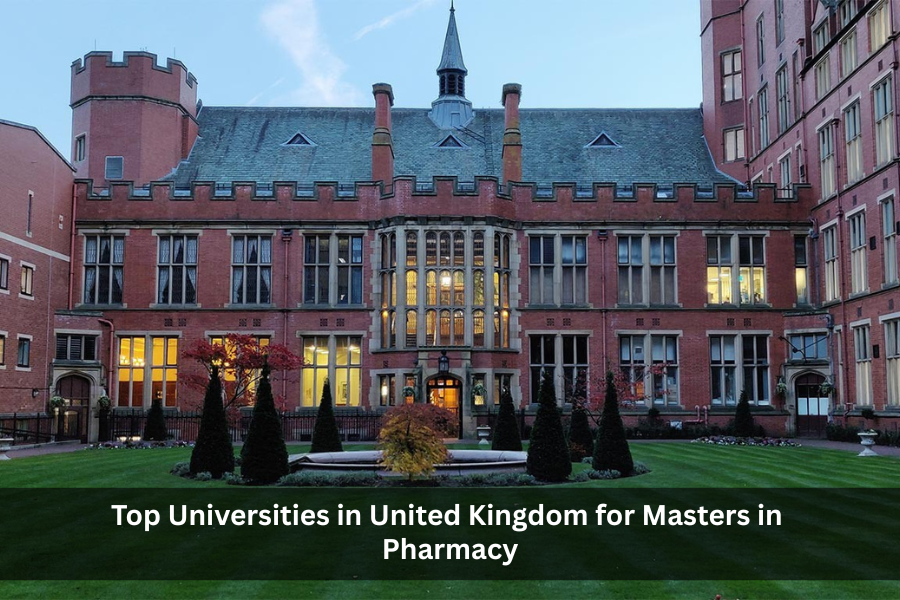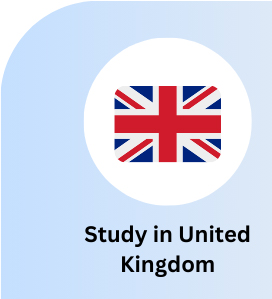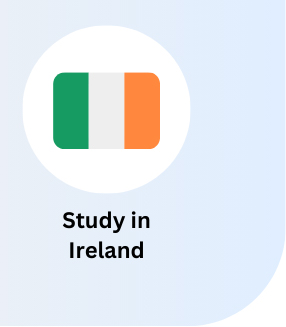
United Kingdom is a top choice for MS in Pharmacy applicants, offering renowned universities, diverse campuses, and excellent post-study work options. Its high quality of life and career opportunities make it an ideal study destination.
Here is the list of 5 Best MS in Pharmacy Universities in United Kingdom along with details of their course duration, fee, eligibility requirements and more:
1. The University of Sheffield (United Kingdom)
The University of Sheffield (informally Sheffield University or TUOS) is a public research university in Sheffield, South Yorkshire, England. Its history traces back to the foundation of Sheffield Medical School in 1828, Firth College in 1879 and Sheffield Technical School in 1884. University College of Sheffield was subsequently formed by the amalgamation of the three institutions in 1897 and was granted a royal charter as University of Sheffield in 1905 by King Edward VII. Sheffield is formed from 50 academic departments which are organised into five faculties and an international faculty. The annual income of the institution for 2019–20 was £737.5 million, of which £171 million was from research grants and contracts, with an expenditure of £609.2 million. Sheffield ranks among the top 10 of UK universities for research grant funding, and it has become number one in the UK for income and investment in engineering research according to new data published by the Higher Education Statistics Agency (HESA).
MSc in Pharmaceutical Engineering at The University of Sheffield (United Kingdom), offered under the Faculty of Engineering, is a one-year STEM-designated program with an international tuition fee of GBP 31,200 (USD 29,700) and estimated living expenses of GBP 13,000; Sheffield, a prestigious Russell Group and original red brick university, ranks among the world’s top 100 universities, is a leader in engineering research investment, and is renowned for its academic excellence and strong research profile.
2. Nottingham Trent University (United Kingdom)
Nottingham Trent University (NTU) is a public research university in Nottingham, England. Its roots go back to 1843 with the establishment of the Nottingham Government School of Design, which still exists within the university today. It is the sixth largest university in the UK (out of 169) with 35,785 students split over five different campuses in Nottingham. The university has most recently opened a new campus in London.The annual income of the institution for 2021–22 was £393.5 million of which £9.1 million was from research grants and contracts, with an expenditure of £385.5 million.
Masters in Pharmacy (MRes in Pharmaceutical Analysis) at Nottingham Trent University, a public research institution in Nottingham, England with origins dating back to 1843, is a one-year STEM-designated program offered by the School of Science and Technology. NTU is the sixth largest university in the UK, hosting over 35,785 students across five campuses, with an additional new campus in London. The tuition fee is £10,000 for domestic students and £17,900 for international students, with estimated living expenses of £12,300.
3. Sheffield Hallam University (United Kingdom)
Sheffield Hallam University (SHU) is a public research university in Sheffield, South Yorkshire, England. The university is based on two sites; the City Campus is located in the city center near Sheffield railway station, while the Collegiate Crescent Campus is about two miles away in the Broomhall Estate off Ecclesall Road in south-west Sheffield. A third campus at Brent Cross Town in the London Borough of Barnet is expected to open for the 2025-26 academic year.
The university is the 14th largest university in the UK (out of 169) with 30,960 students (of whom 4,400 are international students), 4,494 staff and 708 courses.
Masters in Pharmacy (MRes in Pharmaceutical Analysis) at Sheffield Hallam University, offered by the College of Health, Wellbeing & Life Sciences, is a 1-year STEM-designated program with tuition fees of GBP 11,600 for domestic students and GBP 19,700 for international students, plus estimated living expenses of GBP 16,000; SHU is a public research university in Sheffield, South Yorkshire, with campuses in the city center, Broomhall Estate, and an upcoming campus at Brent Cross Town, enrolling over 30,960 students from the UK and around the world.
4. Kingston University (United Kingdom)
Kingston University London is a public research university located within the Royal Borough of Kingston upon Thames, in South West London, England. Its roots go back to the Kingston Technical Institute, founded in 1899. It received university status in 1992, before which the institution was known as Kingston Polytechnic.Kingston has around 17,000 students and a turnover of £192 million.It has four campuses situated in Kingston and Roehampton. The university specialises in the arts, design, fashion, science, engineering, and business and is organised into four faculties: Kingston School of Art, Faculty of Business and Social Sciences (which combines Kingston Business School and the School of Law, Social and Behavioural Sciences), Faculty of Health, Science, Social Care and Education and Faculty of Engineering, Computing and the Environment. The Kingston Business School is CNAA MBA degree approved. In 2017, the university won The Guardian University Award for teaching excellence.Kingston is a member of the European University Association, the Association of Commonwealth Universities and University Alliance group.
Kingston University (United Kingdom), offered by the Faculty of Health, Science, Social Care & Education, is a 2-year STEM-designated MSc program in Pharmaceutical Analysis with Management Studies (with Placement Year), with domestic tuition fees of GBP 11,400 (approx. USD 13,843), international tuition fees of GBP 18,200 (approx. USD 17,500), and estimated living expenses of GBP 18,000.
5. De Montfort University (United Kingdom)
De Montfort University Leicester (DMU) is a public university in the city of Leicester, England. It was established by the Further and Higher Education Act in 1992 as a degree-awarding body. The name De Montfort University was taken from Simon de Montfort, a 13th-century Earl of Leicester.
De Montfort University has approximately 27,000 full and part-time students, 3,240 staff, and an annual turnover in the region of £168 million. The university is organized into four faculties: Art, Design, and Humanities (ADH); Business and Law (BAL); Health and Life Sciences (H&LS); and Computing, Engineering, and Media (CEM). It is a Sustainable Development Hub, focusing on Peace, Justice, and Strong Institutions, an initiative by the United Nations launched in 2018. The Department of Education awarded the university an overall Silver rating in the 2023 Teaching Excellence Framework. It is a member of the Association of Commonwealth Universities.
MSc in Pharmaceutical Biotechnology at De Montfort University (United Kingdom), offered by the Faculty of Health and Life Sciences, is a 1-year STEM-designated program with tuition fees of $12,319 for domestic students and $17,300 for international students, and estimated living expenses of GBP 13,600.
If you’re planning to study in United Kingdom, check out our comprehensive guide covering everything you need to know from top universities and popular programs to career prospects, tuition fees, cost of living, scholarships, visas, and more.
 |
 |
 |
 |
 |
 |
 |
 |
